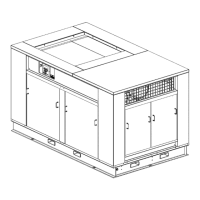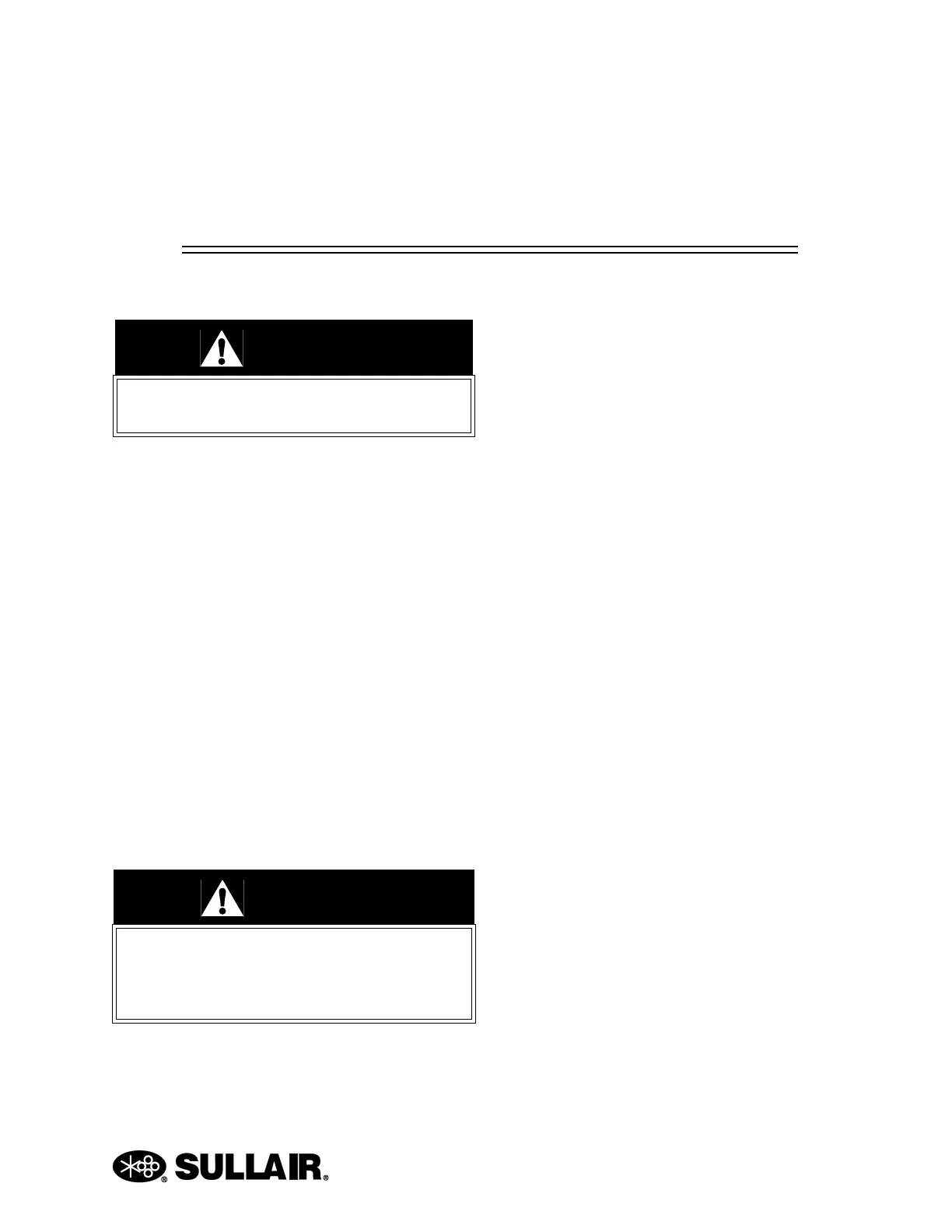Section 6
111
TS20C USER MANUAL
MAINTENANCE
6.1 GENERAL
This compressor requires a minimal amount of
inspections and maintenance. The Supervisor™
Controller and other indicators alert the operator to
situations requiring maintenance, or fault conditions.
6.2 DAILY OPERATION
Prior to starting the compressor, it is necessary to
check the fluid level in the sump. Should the level be
low, simply add the necessary amount. If the addition
of fluid becomes too frequent, a simple problem has
developed which is causing this excessive loss. See
the Section 7: Troubleshooting under Excessive
Fluid Consumption for a probable cause and remedy.
After a routine start has been made, observe the
Supervisor control panel and be sure it monitors the
correct readings for that particular phase of
operation. After the compressor has warmed up, it is
recommended that a general check of the overall
compressor and Supervisor be made to assure that
the compressor is running properly.
6.3 MAINTENANCE AFTER
INITIAL 50 HOURS OF
OPERATION
After the initial 50 hours of operation, a few
maintenance actions are required to clean the
system of any foreign materials. Perform the
following maintenance operations:
1. Clean the return line strainer. Refer to
Maintenance Every 2000 Hours for location.
2. Clean the return line orifice.
6.4 MAINTENANCE EVERY 2000
HOURS
After 2000 hours of operation:
1. Clean the return line strainer. Refer to
Discharge, Sump and Piping System in the
parts manual.
2. Replace the fluid filter element.
6.5 FLUID MAINTENANCE
Drain the sump tank and change the compressor fluid
using instructions shown in the Lubrication Guide.
WARNING
Before any repairs are attempted, refer to
Section 1: Safety before proceeding.
WARNING
DO NOT remove caps, plugs, and/or other
components when compressor is running or
pressurized. Stop compressor and relieve all
internal pressure before doing so.

